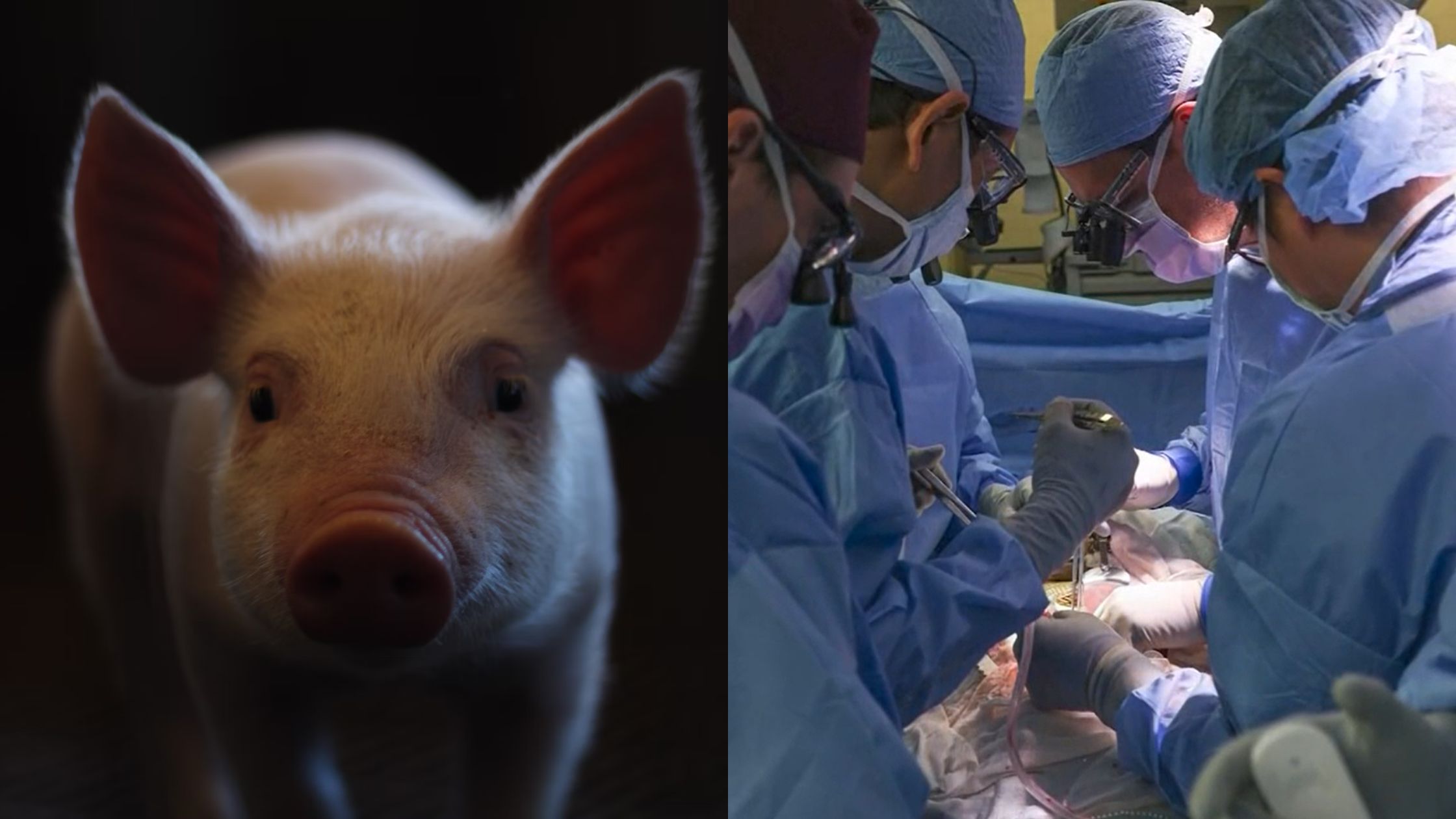


In a groundbreaking medical achievement, US surgeons successfully performed the first pig kidney transplant in a human at Massachusetts General Hospital. This monumental step paves the way for future advancements in xenotransplantation – the process of transplanting organs between different species. Here’s everything you need to know about this revolutionary breakthrough.
Table of Contents
ToggleThe remarkable feat was made possible through cutting-edge gene editing technology known as CRISPR. By modifying specific genes in three pig donors, scientists were able to significantly reduce the risk of organ rejection by eliminating sugar molecules responsible for triggering immune responses. The result? An unprecedented milestone in modern medicine, showcasing the power of genetic engineering in overcoming barriers in organ transplants.
Organ shortage has been a persistent challenge worldwide, resulting in hundreds of thousands of preventable deaths annually. With genetically modified animal organs potentially serving as alternatives, researchers hope to alleviate this global crisis by expanding available resources beyond traditional human sources.
This pioneering work offers newfound optimism for those awaiting life-saving procedures while simultaneously raising awareness around ethical considerations associated with interspecies organ transfer.
In spite of the fact that these advancements may appear to be quite encouraging, they are not without dispute. Concerns about the wellbeing of animals and the possibility of the transfer of zoonotic illnesses have spurred debate among experts in the scientific community as well as in the moral community. Throughout each and every step of development, it is imperative that rigorous research and stringent rules that control the use of animals in biomedical contexts continue to be of the utmost importance in order to address these challenges.
Experts are in agreement that sustained research into xenotransplantation offers enormous promise for bringing about dramatic change across a variety of facets of healthcare delivery, despite the fact that worries continue to be in the background. Our ability to enhance patient outcomes and save lives rises in tandem with the depth of our expertise of the subject matter.
Although still in its infancy, this successful experiment marks a crucial
milestone towards clinical trials involving live recipients. Further investigation is necessary to evaluate long-term safety and efficacy; however, early indicators suggest a positive trajectory for the field of xenotransplantation.
With ongoing support and collaboration from regulatory bodies, funding agencies, and the broader scientific community, researchers anticipate progression toward more extensive studies investigating additional porcine organ systems. These efforts hold the potential to further expand options for patients suffering from end-stage organ failure, ultimately reducing wait times and improving overall prognoses.
International cooperation remains vital to driving innovation within this burgeoning area of study. Cross-disciplinary partnerships fostering dialogue between specialists in genetics, immunology, surgery, bioethics, and public health policy are essential for ensuring sustainable growth and success. Through unified endeavors, we can better navigate complex challenges, mitigate risks, and unlock the full potential of xenotransplantation technologies.
A number of cutting-edge approaches, including stem cell treatment, tissue engineering, and nanotechnology, have fascinating prospects for boosting compatibility between different biological entities. Utilizing these innovative methodologies in conjunction with well-established procedures has the potential to result in even more significant advancements in the direction of obtaining the seamless integration of organs from non-human sources into human hosts.
Despite the fact that there is still a significant amount of work to be done before widespread adoption becomes a reality, this recent achievement stands as a monument to the inventiveness and drive of the human race.
It is a manifestation of our collective capacity to triumph over challenges that appear to be insurmountable, pushing the limits of what is possible in order to change healthcare procedures and enhance the quality of life for a great number of people all over the world.
It is important to note that the successful transplantation of a kidney from a pig into a human being constitutes a huge step forward in the field of xenotransplantation. In order to tackle organ shortage, save lives, and usher in a new era of customized medicine, researchers have opened the door to creative treatments by utilizing advanced genetic editing technologies such as CRISPR or other similar methods.
The idea of utilizing this information for widespread clinical application is a source of optimism for millions of people who are waiting for medicines that might change their lives, despite the fact that there are still obstacles regarding ethics and legislation.
Together, let us seize this chance to transform the landscape of organ transplantation, igniting curiosity and encouraging development along the way. Let us do this together.

